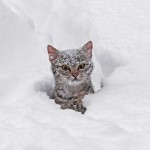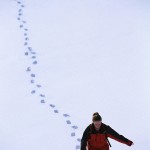Thought for November :-Beauty and the Beast
 Just like a firework we too are colourful and have our own beauty and wonderment but also we can be unpredictable , self destructive even scary in our nature .
Just like a firework we too are colourful and have our own beauty and wonderment but also we can be unpredictable , self destructive even scary in our nature .
Over the years, we tend to get into unhelpful thinking habits such as those described below. We might favour some over others, and there might be some that seem far too familiar. Once you can identify your unhelpful thinking styles, you can start to notice them – they very often occur just before and during distressing situations. Once you can notice them, then that can help you to challenge or distance yourself from those thoughts, and see the situation in a different and more helpful way.
Mental Filter – When we notice only
what the filter allows or wants us to
notice, and we dismiss anything that
doesn’t ‘fit’. Like looking through dark
blinkers or ‘gloomy specs’, or only
catching the negative stuff in our
‘kitchen strainers’ whilst anything more positive or
realistic is dismissed. Am I only noticing the bad
stuff? Am I filtering out the positives? Am I wearing
those ‘gloomy specs’? What would be more realistic?
Judgements – Making
evaluations or judgements about
events, ourselves, others, or the
world, rather than describing
what we actually see and have
evidence for. I’m making an
evaluation about the situation or
person. It’s how I make sense
of the world, but that doesn’t
mean my judgements are always right or helpful. Is
there another perspective?
Prediction – Believing we know
what’s going to happen in the future.
Am I thinking that I can predict the
future? How likely is it that that might
really happen?
Emotional Reasoning – I feel bad
so it must be bad! I feel anxious, so I
must be in danger. Just because it
feels bad, doesn’t necessary mean it
is bad. My feelings are just a reaction
to my thoughts – and thoughts are
just automatic brain reflexes
Mind-Reading – Assuming we
know what others are thinking
(usually about us).
Am I assuming I know what
others are thinking? What’s the
evidence? Those are my own
thoughts, not theirs. Is there
another, more balanced way of looking at it?
Mountains and Molehills
Exaggerating the risk of
danger, or the negatives.
Minimising the odds of how
things are most likely to turn
out, or minimising positives
Am I exaggerating the bad stuff? How would
someone else see it? What’s the bigger picture?
Compare and despair
Seeing only the good and
positive aspects in others, and
getting upset when comparing
ourselves negatively against
them. Am I doing that ‘compare
and despair’ thing? What would be a more balanced
and helpful way of looking at it?
Catastrophising – Imagining and
believing that the worst possible thing
will happen
OK, thinking that the worst possible
thing will definitely happen isn’t really
helpful right now. What’s most likely
to happen?
Critical self
Putting ourselves down, self-
criticism, blaming ourselves for
events or situations that are not
(totally) our responsibility
There I go, that internal bully’s at it again. Would
most people who really know me say that about me?
Is this something that I am totally responsible for?
Black and white thinking – Believing that
something or someone can be only
good or bad, right or wrong, rather
than anything in-between or ‘shades
of grey’. Things aren’t either totally
white or totally black – there are
shades of grey. Where is this on the
spectrum?
Shoulds and musts –
Thinking or saying ‘I should’ (or
shouldn’t) and ‘I must’ puts
pressure on ourselves, and sets
up unrealistic expectations.
Am I putting more pressure on
myself, setting up expectations
of myself that are almost
impossible? What would be more realistic?
Memories – Current
situations and events can
trigger upsetting memories,
leading us to believe that the
danger is here and now, rather
than in the past, causing us
distress right now. This is just
a reminder of the past. That was then, and this is
now. Even though this memory makes me feel upset,
it’s not actually happening again right now.
No Responses • Leave a response






